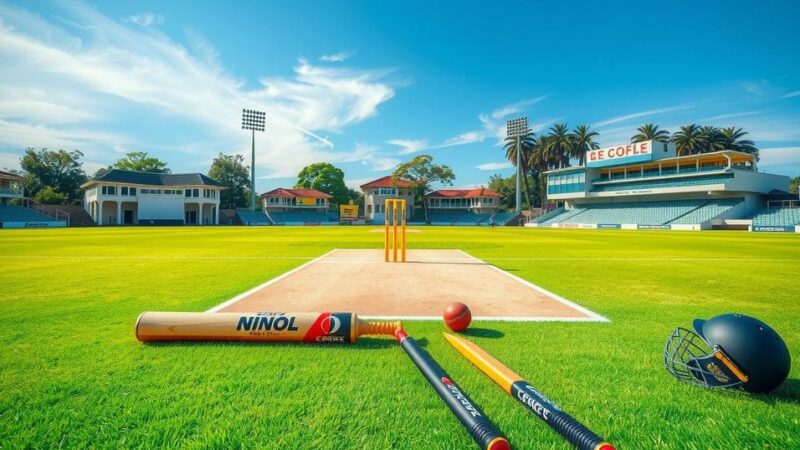The Nigerian national football team, the Super Eagles, threatens to boycott their AFCON qualifier against Libya after being stranded overnight at Al Abraq Airport due to a flight diversion. Team captain William Troost-Ekong criticized the Libyan government for denying their landing approval, likening the situation to mind games intended to disrupt morale. Concerns were also raised by star player Victor Osimhen regarding player safety.
The Nigerian national football team, known as the Super Eagles, announced their intention to boycott their Africa Cup of Nations (AFCON) qualifying match in Libya following an overnight ordeal at Al Abraq Airport. Team captain William Troost-Ekong characterized the situation as an example of “mind games” being played by their opponents. Scheduled to play in a crucial second-leg match on Tuesday, the Nigerian team had won the first leg 1-0 on Friday, a match that was also marred by accusations of sabotage from the Libyan side. Troost-Ekong revealed that the team’s flight was initially intended to land at Benghazi Airport but was diverted without explanation, resulting in the players being stranded approximately 220 kilometers from their destination. He expressed frustration at the Libyan government for revoking their landing approval without justification, stating, “They’ve locked the airport gates and left us without phone connection, food or drink. All to play mind games.” Images shared on social media depicted players resting uncomfortably in the terminal, with their luggage scattered beside them without any visible passengers nearby. Star player Victor Osimhen, absent from the team due to a muscle injury, criticized the Libyan Football Federation for what he described as an intentional strategy to undermine the morale of the Nigerian team, expressing concern for his teammates’ safety, saying, “It is beginning to look more like a hostage situation. My brothers and coaches must return home safely. We are not criminals or prisoners.” Other notable players in the squad include Ademola Lookman, recognized for his recent achievements, and several Premier League talents such as Ola Aina and Wilfred Ndidi. The Libyan team had previously leveled allegations of maltreatment against Nigeria, prompting the Nigerian Football Federation to refute those claims. In their defense, Libya’s captain Faisal Al-Badri relayed their own difficulties during travel, emphasizing the importance of equitable treatment in African football. In response to the situation, Nigeria’s sports minister John Owan Enoh has instructed the soccer federation to file a formal complaint with the African soccer governing body to ensure the incident is properly documented and addressed.
The ongoing conflict between Nigeria and Libya’s football teams has been underscored by accusations of unsportsmanlike conduct and adversities faced during travel for matches. Historical grievances have fueled tensions, particularly in international competitions like the Africa Cup of Nations. The recent debacle involving the Super Eagles being stranded at Al Abraq Airport raises serious questions about match day logistics and the treatment of teams in Africa. The Nigeria Football Federation has been urged to formally respond to these challenges to promote fair competition within the sport.
The ongoing strife between Nigeria and Libya is illustrative of larger issues concerning the treatment and conditions faced by national teams during international competitions. The Nigerian team cites being subjected to mind games that jeopardize their preparations and safety. The situation remains fluid, with Nigeria’s sports authorities seeking redress for these grievances in hopes of fostering a more equitable playing field in African football.
Original Source: www.business-standard.com





